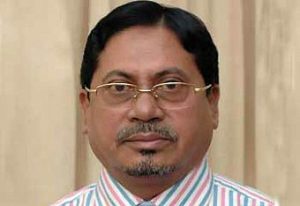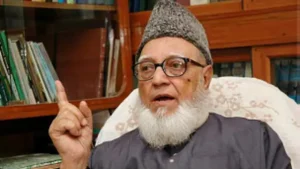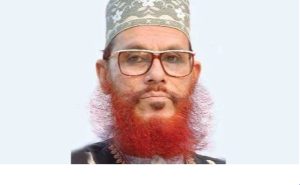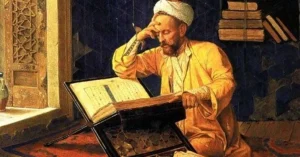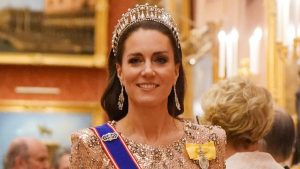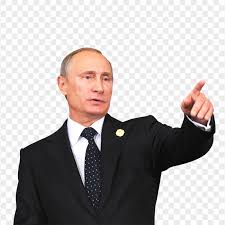
Early Life and Education
Vladimir Vladimirovich Putin was born on October 7, 1952, in Leningrad (now Saint Petersburg), Soviet Union. His father, Vladimir Spiridonovich Putin, was a factory worker and former Soviet Navy serviceman, while his mother, Maria Ivanovna Putina, was a factory worker. Putin grew up in a modest household in a communal apartment, a common arrangement in the Soviet Union at the time.
Putin attended Leningrad State University (now Saint Petersburg State University), where he studied law and graduated in 1975. During his university years, he joined the Communist Party of the Soviet Union and also became involved with the KGB, the Soviet security agency.
KGB Career
After graduating, Putin joined the KGB and was assigned to counterintelligence before being stationed in Dresden, East Germany, from 1985 to 1990. While in East Germany, he worked in intelligence gathering and maintained surveillance on foreign nationals. Following the fall of the Berlin Wall in 1989 and the collapse of the Soviet Union, Putin returned to Leningrad, where he resigned from the KGB in 1991 with the rank of Lieutenant Colonel.
Political Ascent
Putin’s political career began in Saint Petersburg, where he worked under Anatoly Sobchak, the city’s mayor. He quickly rose through the ranks and became a key figure in the local government. In 1996, he moved to Moscow to work for the Kremlin under President Boris Yeltsin’s administration.
In 1998, Yeltsin appointed Putin as the Director of the Federal Security Service (FSB), the successor agency to the KGB. Shortly thereafter, he became Secretary of the Security Council of Russia. In 1999, Boris Yeltsin appointed Putin as Prime Minister, and later that year, Yeltsin unexpectedly resigned, naming Putin as acting President.
Presidency and Leadership
Putin won the presidential election in March 2000 and took office on May 7, 2000. His early presidency focused on economic stabilization, restoring state control over major industries, and combating terrorism in the North Caucasus, particularly in Chechnya.
Putin was re-elected in 2004 and continued consolidating power, limiting political opposition, and tightening media control. Due to constitutional term limits, he stepped down as President in 2008 but remained in power as Prime Minister under Dmitry Medvedev’s presidency. In 2012, Putin returned as President after winning a controversial election, and he was re-elected again in 2018.
Under his leadership, Russia has pursued aggressive foreign policies, including the annexation of Crimea in 2014 and military interventions in Syria and Ukraine. He has maintained a strong nationalist stance, emphasizing Russian sovereignty and opposing NATO expansion.
Controversies and Criticism
Putin’s presidency has been marked by allegations of human rights violations, suppression of political opposition, and election rigging. High-profile opposition figures, including Alexei Navalny, have accused him of corruption and political repression. His government has been criticized for restricting freedom of speech, jailing critics, and controlling state media.
Internationally, Putin’s policies have led to sanctions from Western countries, particularly following Russia’s involvement in Ukraine. He has been accused of interfering in foreign elections, including the 2016 U.S. presidential election.
Personal Life and Interests
Putin married Lyudmila Putina in 1983, and they had two daughters, Maria and Katerina. The couple divorced in 2014. Putin is known for his carefully cultivated public image, often portrayed as a strongman engaging in activities such as judo, ice hockey, horseback riding, and swimming.
Vladimir Putin’s Legacy
Vladimir Putin’s legacy is a complex and controversial one, characterized by strong leadership, economic recovery, geopolitical assertiveness, and accusations of authoritarianism. Below are the key aspects of his legacy:
1. Political Stability & Centralized Power
Putin is credited with restoring political stability to Russia after the chaotic 1990s under Boris Yeltsin.
He consolidated power by weakening opposition forces, controlling the media, and ensuring loyalty within the government.
Constitutional changes in 2020 allowed him to potentially remain in power until 2036, further strengthening his grip on the Russian political system.
2. Economic Development & Challenges
Russia’s economy grew significantly in the early 2000s due to rising oil and gas prices.
Under Putin, Russia became a global energy powerhouse, leveraging its natural resources for political influence.
However, Western sanctions following the annexation of Crimea (2014) and the Ukraine invasion (2022) have strained the economy.

